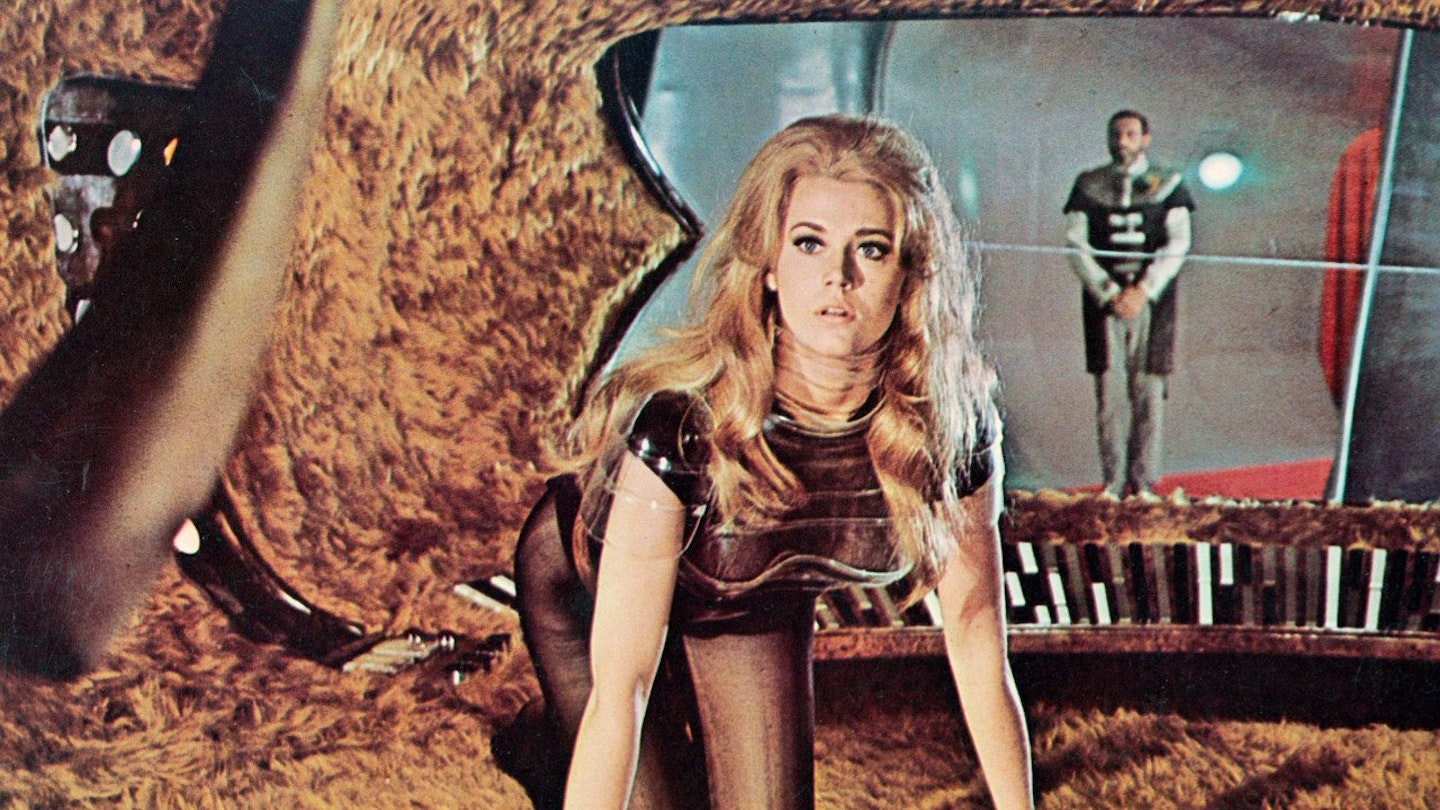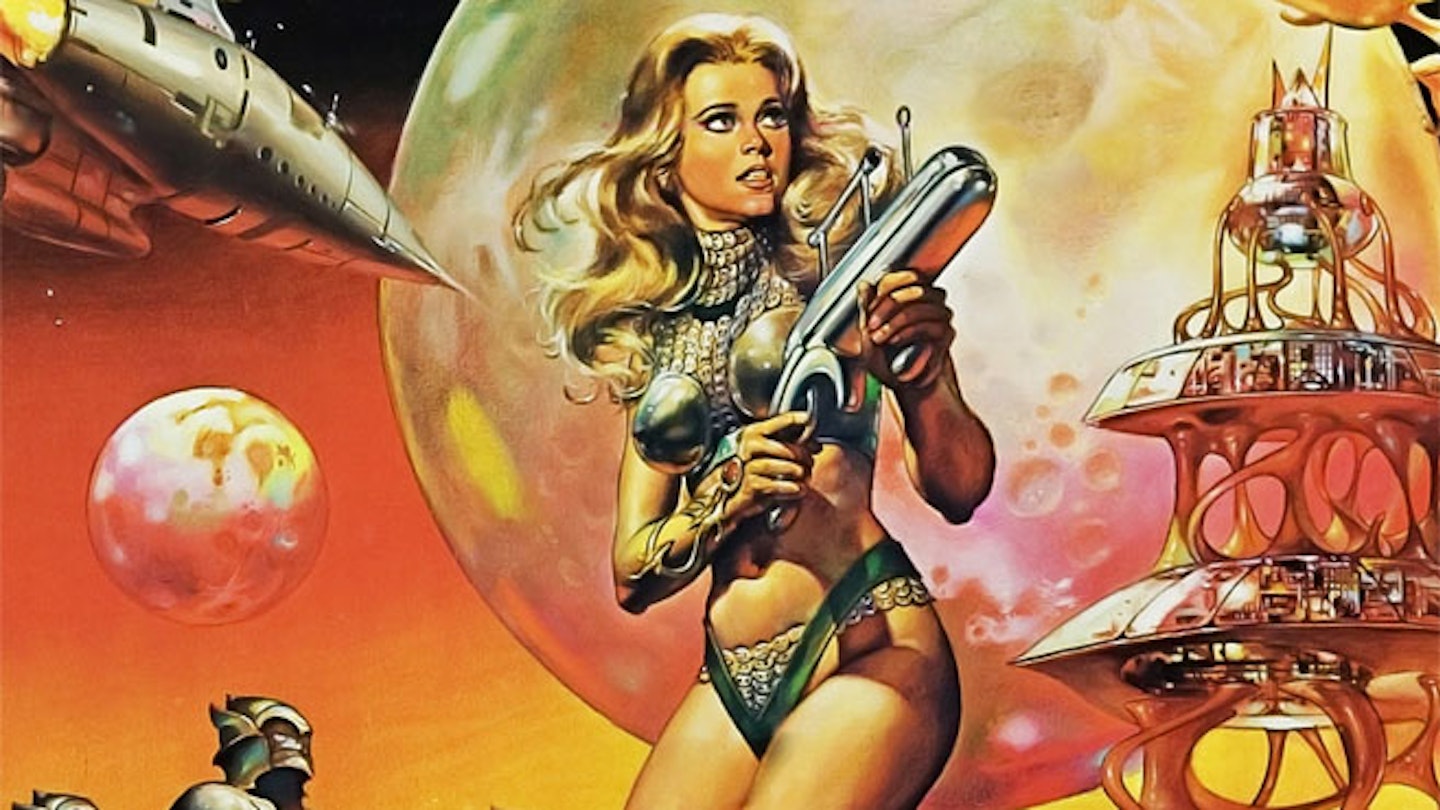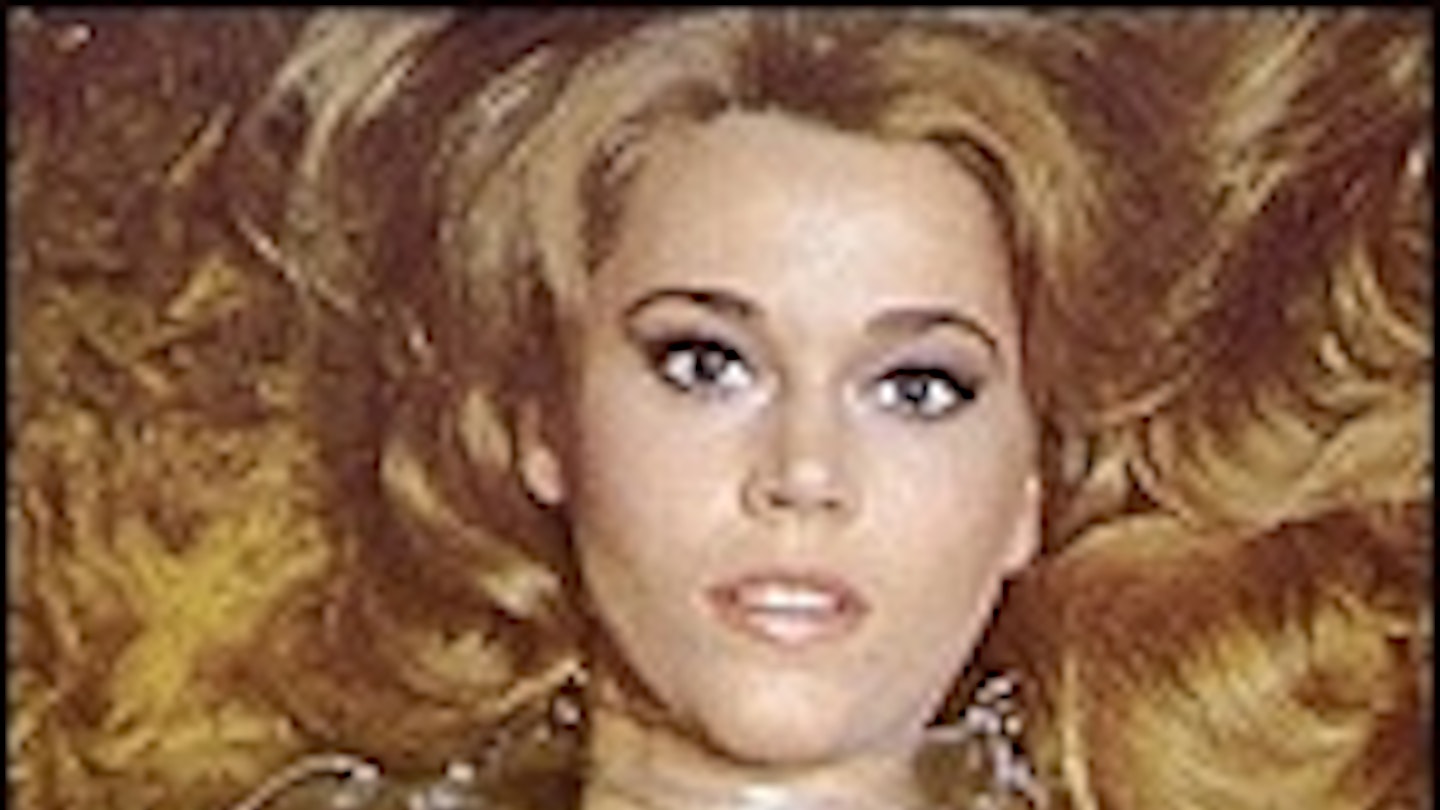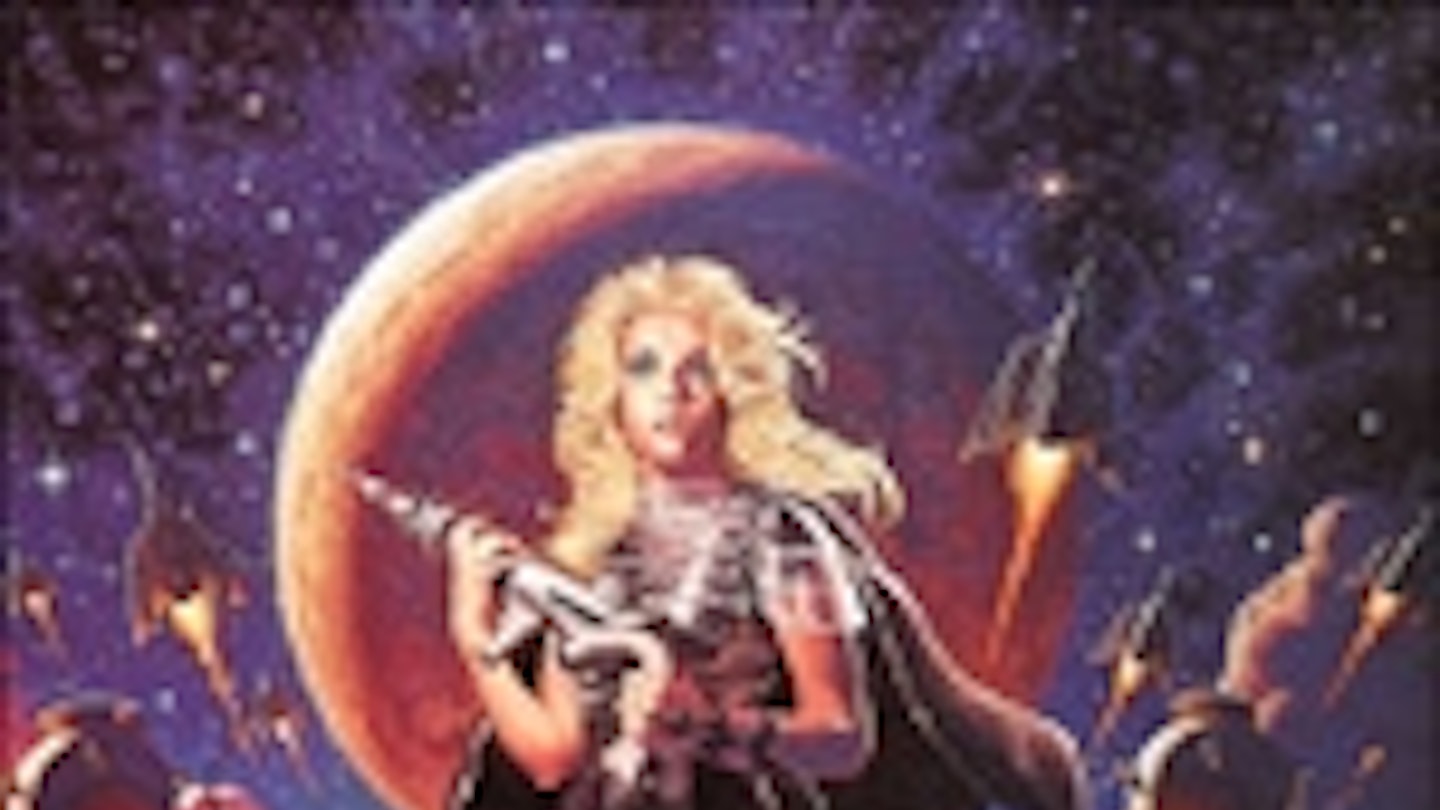This is the first of three colourful, sexy, trivial, endearing Dino De Laurentiis productions adapted from popular comic strips — the others being Mario Bava's superthief epic Diabolik (1968) and Mike Hodges' delirious remake of Flash Gordon (1980). All these films are literally episodic, preserving the plot lurches of a medium given to introducing new characters and settings every week, and have a bubbly, pop-art sensibility that spends more time on the art direction, the costuming and the psychedelic music track than the plot (though it took seven credited writers to script Barbarella, including Terry Southern).
Set beside Barbarella, the staid 2001: A Space Odyssey and the sexless Star Wars seem pretty stuffy; actually, when Jane Fonda's orgasm blows all the fuses of an "excessive pleasure machine," Barbarella makes Flesh Gordon seem pretty stuffy. Jean-Claude Forest's original comic strip, to which the multi-authored film is surprisingly faithful, was a witty, teasing homage to Alex Toth's famous Flash Gordon strips, replacing the iron-jawed space pilot Flash with a blonde "five star double-rated astro-navigatrix."
The Frenchman Forest based his heroine on the cinema's reigning sex kitten, Brigitte Bardot. De Laurentiis signed up Bardot's ex-husband/sometime Svengali to direct his expensive Barbarella, and he brought along his current wife as star. In 1967, Jane Fonda was at the height of her adorability, well before her political commitments of the 70s and work-out obsessions of the 80s. In America, she had not overcome the stigma of being the daughter of screen legend Henry and had endured a series of fluffy co-ed roles before having a hit and gaining a sexy image in amazingly tight jeans as the wholesome outlaw heroine Cat Ballou. She brings to Barbarella a strange, saluting squareness that is as big-sisterly as it is sirenlike ("Oh, how darling," she exclaims over cute children, nice dollies or pretty little birds — all of which then try to kill her), but she wears (and unwears) a succession of truly amazing fashion creations with all the confidence of a generation that thought sex was, above all, fun.
Over 30 years on, there is still an irresistible sexiness to Barbarella's post-coital langours, as she sings her own theme song ("Barbarella, Psychedelia!") while stroking her face with an angel-feather plucked during passion. The plot, which everyone treats as a joke ("a good many dramatic situations begin with screaming"), has Earth girl Barbarella despatched to Tau Ceti in search of missing scientist Duran Duran (yes, that's where those 80s gits got their name from) and his deadly "positronic ray" ("Why would anybody want to invent a weapon?"). Earth has been civilised and harmonious for centuries, but Tau Ceti exists "in a primitive state of neurotic insensitivity" and the naive heroine runs into a succession of oddballs who want to kill her or have sex with her or both. Among the Tau Cetians we meet are a horde of appealing but murderous feral children (their steel-mouthed dolls nibble Barbarella's thighs), the hairy-chested "Catchman" Mark Hand (Ugo Tognazzi, who introduces Barbarella to old-fashioned physical sex and makes a notable convert), underground revolutionaries Professor Ping (Marcel Marceau) and Dildano (David Hemmings, who has hand-touching new-fashioned mental sex with our girl), the concierge (Milo O'Shea, who plays a sonata for "Executioner And Various Young Women" with Barbarella and the excessive pleasure machine), Pygar the blind angel (John Phillip Law, doing for female audiences what Jane Fonda did for the men) and the svelte Great Tyrant Of Sogo (Anita Pallenberg of Performance fame, dubbed with the deeply sexy croak of Joan Greenwood).
Rather like the central character of a Fellini movie (De Laurentiis produced Nights Of Cabiria and La Strada), Barbarella's journey brings her to a big city which turns out to be hideously decadent underneath its attractive bustle. Sogo, dedicated to evil pleasures, is built on top of a living lake called the Matmoss that feeds off the citizens' rottenness, as represented by such depraved pleasures as ladies lolling about smoking "essence of man" from a giant bong in which a man is drowning, and the crucifixion of the innocent angel. The finale has everything blow up as the Matmoss overwhlems Sogo, the revolutionaries are callously zapped into nowhere by the usurping concierge (who turns out to be the fugitive Duran Duran) and only Barbarella's innocence protects her from the evil goo, which makes a bubble in itself to avoid touching her. Finally, Pygar saves both Barbarella and the wicked queen, proclaiming quite reasonably that an angel has no memory.





